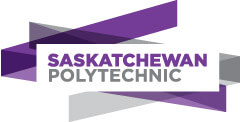About Electrical Engineering Technology Diploma in Saskatchewan Polytechnic
Program Overview
Western Canada is growing—our economy, our population, our demand for energy. Electrical engineering technologists are specialists in the generation, transmission, distribution and utilization of energy. It’s a powerful career choice that demands good problem-solving skills and an eye for detail. In return, you’ll enjoy good job prospects, excellent mobility and great earning potential.
The Electrical Engineering Technology program is a three-year diploma offered full time at Saskatchewan Polytechnic, Moose Jaw Campus. There are five academic semesters and three Co-operative Education work terms.
You’ll study topics similar to Electronic Systems Engineering Technology students, including computer-aided drafting, computer applications and programming, digital logic circuits, basic electricity, semi-conductor electronics and AC circuits. Your knowledge and skills will become more focused as you advance. You’ll study:
- electrical system design
- lighting design
- electrical power generation
- relaying and protection
- electrical systems and transmission design
- electrical machines
- industrial control systems
- instrumentation
Lab work and projects provide a hands-on focus to learning. You’ll develop a technical proposal, apply research skills to a technical problem, design and build electrical systems and more.
The Co-op Work Term Advantage
Co-operative work terms are paid, so you'll earn while you learn. Saskatchewan Polytechnic arranges your interviews; it's up to you to shine. It's also a chance to develop important "soft skills" in job interviewing, professional attitude, interpersonal communication and more.
Many of our co-op employers require both a valid Saskatchewan Driver's License and a clean Driver's Abstract. For international students, it can take up to 12 months to obtain a Driver's license; therefore, it is to your advantage to come with a Driver's License from your home country if possible. Some opportunities require a Criminal Record Check and/or drug and alcohol testing.
Diploma to Degree
Use your diploma to ladder into an engineering degree at Lakehead University in Ontario or a mining engineering technology degree at Queen’s University in Ontario or a technology degree at Memorial University in Newfoundland.
Learning Environment
- 40 students are accepted each year.
- Students will experience lab and project work, lectures and co-operative work terms.
- Class hours are 8:30 a.m. to 4:30 p.m. daily. On average students are expected to complete 20 hours of homework each week outside class time.
- There are some group projects that require coordination.
- It is very important that students take initiative and manage their work time effectively.
Career and Salary Information
Your Career
Demand for electrical engineering technology graduates is strong. There are opportunities in construction, manufacturing, consulting engineering, power generation, renewable energy, mining, oil and gas. You could work in plant operations and maintenance, technical sales and service, automated control systems, design, estimating, metering and more.
Academic qualification equivalents:
- Grade 12 with a minimum 60% in each of the following subjects: English Language Arts A30, English Language Arts B30, Chemistry 30 and Pre-Calculus 30
English language requirements (one of the below):
- IELTS : Overall minimum score of Band 6.5 with a minimum score of 5.0 in each component.
- TOEFL : An overall minimum score of 81 on the Internet-based Test of English
- PTE : A minimum score of 63 with minimum component scores of 50.
Saskatchewan Polytechnic Highlights
| Type |
Public |
| Campus Setting |
Urban |
| Application mode |
Online and Paper mode available |
| Graduation rate |
62% |
| Acceptance rate |
96% |
| Number of Students |
16,008 |
| Overall cost of living |
14,762 CAD |
| Academic calendar |
Semester based |
| % of International students |
6% |
| Number of campuses |
4 |
| Medium of instructions |
English |
| Undergraduate Tuition fee |
14,044 CAD |
| Postgraduate Tuition fee |
16,426 CAD |
| Cost of living |
694 -1147 CAD per month |
Saskatchewan Polytechnic First-Year Tuition Fees And Living Expenses For International Students
Over the course of one academic year, the following graph displays tuition and living expense estimates in Canadian currency for one full-time international undergraduate student. Please bear in mind that these are only estimates; actual pricing will vary depending on your needs and preferences. Other factors to consider include currency changes, visa and study authorization fees, and vacations back home.
- For international students, the overall fees will range from:-
| Particulars |
Amount |
| Administrative fees |
50.00 to 150.00 CAD |
| Application fees |
150 CAD |
| Student association fee |
95.00 to 445.00 CAD |
| Non-refundable fee at the start) |
1,000 CAD |
| Tuition fee range |
6,195 to 18,089 CAD |
| Laboratory fee |
100.00 to 409.00 CAD with no fees for
some courses which do not have a lab service. |
| Books and Supplies |
200 to 3,725 CAD |
| Technology fee |
50 to 146 CAD |
- For a student of Saskatchewan Polytechnic the required financials (Cost of Attendance) can be:-
| Description of Financials |
Amount in CAD |
| Average cost of tuition |
11245.77 CAD |
| Cost of living |
10799.39 CAD |
| Application fee |
150 CAD |
| Estimated total (per year) |
22,195.16 CAD |
